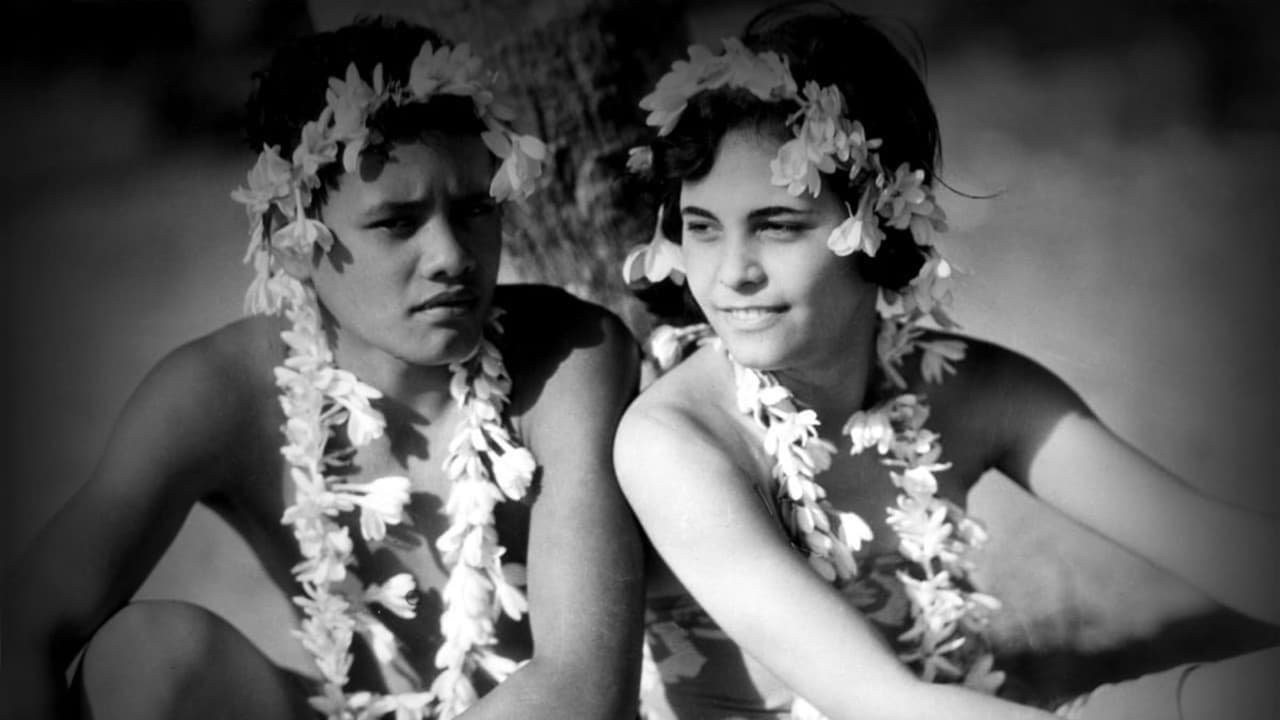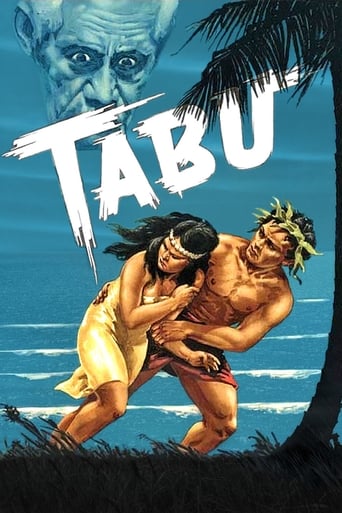Diagonaldi
Very well executed
BootDigest
Such a frustrating disappointment
Teddie Blake
The movie turns out to be a little better than the average. Starting from a romantic formula often seen in the cinema, it ends in the most predictable (and somewhat bland) way.
Micah Lloyd
Excellent characters with emotional depth. My wife, daughter and granddaughter all enjoyed it...and me, too! Very good movie! You won't be disappointed.
st-shot
This beautiful and simple story of a South Seas love and loss romance might be the last great silent from the era. Along with City Lights (made the same year) it may well be credited as the apogee of the silent period even with the writing on the wall ( microphones in the plants) since 1927.On the island of Bora Bora experiencing the full bloom of youth and beauty a girl and boy find love. Her radiance however is coveted by the Old Warrior who holds huge sway over his people as he demands she be his next wife. The lovers run off, find safe haven and employment on a more "civilized island" where the locals and Asian merchants exploit their innocence. Bribing a local cop, he's allowed to stay on but the threat of the Old Warrior causes vacillation on the girl's part who struggles with the fact that the only way to save her lover is to leave him. FW Murnau's last film was fraught with budget and personality difficulties as he and his co-director Robert Flaherty did not see eye to eye. Distilling to a native crew and relying on Floyd Crosby's outstanding capture of the island paradise, it's people and the unabashed joie de vivre of a life in the sun Murnau movingly follows his doomed duo stranded in Eden, hunted by a stoic resolve that builds to a dire crescendo. Trapped by tradition, exploited by modern society Murnau paints his pair of protagonists into a corner and in the process paints a masterpiece of simple storytelling of his own.
Lechuguilla
A teenage island native, played by a young man named Matahi, and his love interest, Reri (Anne Chevalier), live happily in a South Seas paradise, surrounded by lush tropical vegetation, waterfalls, and majestic mountains. He's a pearl fisherman. She's an unattached young beauty. Their lives are simple and reasonably carefree. A spirit of innocence prevails. But even amid such beautiful simplicity and natural wonders, sinister elements lurk in the background. And that's the film's main theme.The story is simple and direct. It's both a love story and a visual documentary that will appeal to Westerners accustomed to a more tech lifestyle. Parts of the narrative are conveyed by means of the writings in a ship captain's log. The writing is displayed on the screen, for viewers to read. The film's tone varies from light and cheerful at the beginning to more somber as the plot moves along.Shot in Tahiti and Bora Bora, the film has a cast made up entirely of non-professionals. The B&W lighting is good, given the early era.The film is one of the last of the silent period. And I'm therefore reluctant to find fault with it. The native Pacific music is really beautiful, what there is of it. I could have wished for a lot more. By contrast, the imported symphonic score is loud, nondescript, and intrusive. I guess that would be the one thing I would have changed.Even for viewers who don't care for silent films, "Tabu: A Story Of The South Seas" might be appreciated for its documentary style visuals. For viewers familiar with silent cinema, this is a must-watch film, Director F.W. Murnau's last.
Claudio Carvalho
Chapter 1 - Paradise: The youngsters Matahi and Reri are in love for each other. When Reri is chosen by the old warrior Hitu to be the god's maid, she must stay virgin and untouched, otherwise her lover and she should die. But Matahi abducts and escapes with her to an island ruled by the white man, were their gods would be harmless and powerless.Chapter 2 - Lost Paradise: Matahi is an excellent diver, getting many pearls from the bottom of the ocean, but he does not know the meaning of money, promoting a feast to the villagers and signing the bills the smart Chinese businessman presents to him. Meanwhile Hitu chases them, and Matahi and Reri decide to buy a ticket to travel by ship to another place. However, the Chinese charges the bill and Matahi, without any money, goes to a forbidden sea with sharks trying to get a huge pearl to pay for his debts and escape with Reri. But she decides to leave the island with Hitu and spare Matahi's live. But Matahi swims after their boat, dying of exhaustion in the sea."Tabu: a Story of the South Seas" is an innocent and tragic love story. The movie practically does not have any professional actor or actress, and the cinematography is very impressive, considering the type of equipment available in 1931. The landscapes are wonderful, the underwater sequence is amazing and the love story ahead of time. My vote is eight.Title (Brazil): "Tabu"
Prof_Lostiswitz
This is a great film, one that actually benefits from being silent. The south-seas love story could seem incredibly hackneyed, but the sensitive silent presentation makes it all seem believable. Flaherty's painstaking ethnographic research pays off, establishing that we are getting a genuine look at Polynesian village life. The roles are played by actual villagers under their own names.This was originally going to be a documentary like Nanook of the North, but Murnau got so fascinated by Polynesian legends told by the locals that he decided to incorporate them into the story. This also meant that he had to invest his own money in the film, as Hollywood would have none of it. Nowadays we think anything so beautiful couldn't be genuine, but Murnau and Flaherty seem to have constructed an accurate document.The tragic love story has its parallel in real life, as Murnau was killed in a car-crash days after the film's completion.The MTV generation is better able to appreciate silent films than the 60's crowd, so I recommend to viewers interested in something different.

